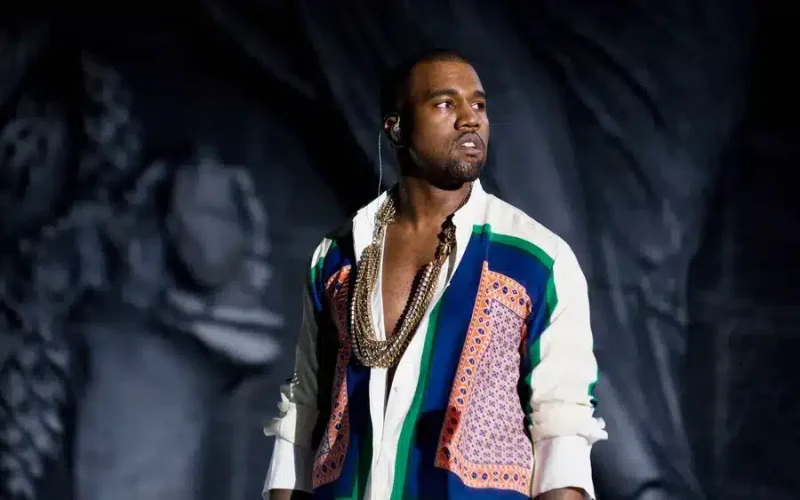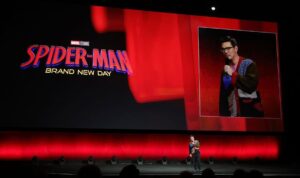Kanye West’s eagerly anticipated display in South Korea turned out to be suddenly cancelled just weeks earlier than the scheduled date. Set for May 31, 2025, in Incheon’s Munhak Stadium, the gig promised to be a watershed moment: Kanye’s (now legally Ye) debut solo performance in South Korea. However, as a result, it has become the latest casualty in a litany of disputes involving the artist.
The official purpose? “Latest controversies related to the artist”, as declared by South Korean e-commerce giant Coupang and price ticket supplier Interpark.
Cancelled earlier than the Beat Drops: A Concert
With Yeezy merchandise being promoted on Coupang’s web page and exhilaration roiling on social media, the hype materialised. However, the commotion swiftly escalated into a response.
The cancellation came some days after Kanye released the tune “Heil Hitler“, which provoked international indignation for exalting one of the most heinous individuals in history—the Nazi leader who did the Holocaust. Unexpectedly, platforms like SoundCloud, YouTube, and Spotify decided to remove the song. Coupang Play, no longer wanting to be stuck in the controversy, halted all Yeezy products’ income and promised full refunds to price tag holders.
The “Heil Hitler” track: Controversy Amplified
If you consider Kanye’s past controversies severe, “Heil Hitler” drove the needle into uncharted territory. Launched on May 8, 2025, the music’s unapologetic praise of Adolf Hitler changed into met with shock, disbelief, and big condemnation.
Important streaming structures banned the tune nearly at once, citing hate speech policies. Yet, the track found an unlikely home on Elon Musk’s social media platform X (previously Twitter), in which it gathered over 10 million perspectives in days—a fact that alarmed critics and human rights advocates.
This viral unfold fuelled a brand new wave of concern, triggering motion from manufacturers and live performance organisers globally.
A sample of Provocation: Kanye West’s troubled history
This modern firestorm didn’t pop out of nowhere. Kanye West had controversial statements and moves were escalating for years. His 2022 antisemitic comments cost him his beneficial Adidas Yeezy partnership, a commercial enterprise deal that later made him a billionaire.
In October 2022, Adidas ended its courting with Kanye, citing his hateful rhetoric as incompatible with their values. The final Yeezy footwear had been bought off quietly in early 2023. Now, with “Heil Hitler”, Kanye West seems to have doubled down on this troubling trajectory, alienating fans, brands, and even former collaborators.
Company Responsibility: Coupang’s bold Stand
South Korea’s Coupang made headlines for appearing decisive. Not like a few organisations that watch for public strain to mount, Coupang pulled the plug speedily, cancelling the live performance and halting Kanye West product sales within hours of the track’s fallout.
Their assertion became company yet polite: bringing up “recent controversies concerning the artist” and promising complete refunds. This aligns with a growing worldwide trend of businesses refusing to associate with figures whose movements provoke ethical or social outrage.
Enterprise effect: What this means for stay enjoyment
The cancellation marks a sizable moment for the live events industry. As global audiences turn out to be less tolerant of hate speech and extremist rhetoric, promoters and brands are drawing firm lines.
Morality clauses in contracts may end up preferred, allowing organisers to cancel activities at the first sign of controversy.
Public Response: Fanatics, Critics, and Collaborators Weigh In
The general public backlash has been intense. Many fanatics experience conflict, torn between admiration for Kanye West’s musical genius and disgust at his brand-new provocations. Social media is awash with debates about freedom of expression versus responsibility.
Former collaborators like John Legend have spoken out, describing Kanye’s transformation as “unhappy” and “shocking”. Human rights organisations have condemned the track’s embrace with the aid of extremist factions, calling it a risky development with actual international consequences.
Conclusion: While Artwork, Controversy, and Duty Collide
Kanye West’s South Korea live performance cancellation is more than just a scheduling hiccup. It’s a mirrored image of a broader cultural moment—one wherein artists are held accountable for their words and actions and in which hate speech meets rapid results.
As fanatics and industry insiders debate freedom of speech versus moral duty, one aspect is apparent: Kanye West’s recent statements have sparked a reckoning, now not simply for himself but for the global entertainment industry at large.
In the long run, song is meant to bring human beings together, not tear them apart. And when an artist crosses certain lines, the level may also simply be the first factor to head.








